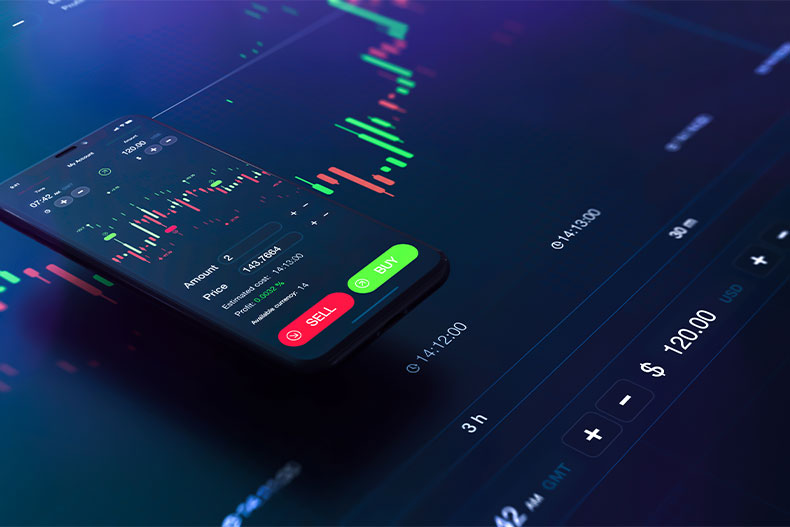There can be no denying the impact of technology on trading activity. In the days of old, stock traders relied on the financial sections of newspapers to monitor stock prices. These indicators served as snapshots for the performance of stocks at the close of trade on the previous day. Unfortunately, these erstwhile systems of measuring the performance of financial instruments was highly questionable, and horribly inaccurate.
Fast forward to the present day. Nowadays, real-time stock price updates are readily available to retail traders and institutional traders alike. While fund managers have access to specialized platforms with powerful algorithms and trading abilities, retail traders still have it pretty good.
The stock trading platforms that are now available to casual traders, intermediate-level traders, and professional traders are capable of executing winning trades, with real-time stock price updates, powerful charting capabilities, and access to a smorgasbord of financial instruments.
 Brokers and Trading Platforms for the DIY Online Trader
Brokers and Trading Platforms for the DIY Online Trader
Over the years, there has been a steady move towards retail trading activity online. The erstwhile systems of trading, notably fund managers, stockbrokers, and financial advisors have largely faded into the background for casual day traders. Now, it is entirely possible to take charge of your own financial portfolio with the help of powerful trading tools and resources facilitated through your broker and chosen ETFs trading platform in the UAE.
A distinction must be made between brokerages and trading platforms. The broker is a representative who negotiates trades on behalf of the trader (buyer/seller). A trading platform by contrast is the actual software that allows you to place those buy and sell orders, or automated trading options. Trading platforms allow you to manage your own financial portfolio.
Brokers can be beneficial to day traders by providing expert assistance in the form of EAs (Expert Advisors). Fortunately, the most powerful trading platforms on the market today are capable of providing you with up-to-the-minute pricing on a wide range of financial instruments, including stocks, commodities, indices, currency pairs, options, ETFs, and crypto too.
As a novice trader in the retail scene, it is certainly possible to derive benefits from utilizing the services of a broker. From a privacy perspective, a trading platform holds merit. You can buy and sell stocks at will, enjoying all the benefits of anonymity while the broker facilitates the trades. Although, if you are going for order execution quality, your best option is to find good prime brokerage services that can help you out.
Of course, stock selection is sacrosanct. Traders are choosing to get started with stock scanners, to pick financial instruments according to preset criteria. The stock scanners scour the markets for the most lucrative opportunities. Sometimes referred to as stock screeners, stock scanners are actually high-tech devices, whereas the former are used for long-term trading and not day trading activity.
Now that these types of tools are readily available to retail traders at home, it’s much easier to sift through thousands upon thousands of stocks listed on major exchanges around the world, and pick those with the highest volatility, biggest price moves, or other criteria. Some scanners require a flat monthly fee, while others can cost tens of thousands of dollars, depending on what traders are looking for.
There are effectively 4 types of stock scanners: intraday stock scanners, technical stock scanners, post-market stock scanners, and fundamental stock scanners. Some brokers and trading platforms offer complimentary use of their stock scanner software, followed by a subscription fee at the end of a trial period. Either way, it’s imperative that traders utilize these powerful tools and resources to improve overall trading activity from home, or on the go.
Sharp Increase in Online Trading Activity Since 2020
Reports from across-the-board attest to the sharp increase in retail trading activity online in 2020. Bloomberg published an op-ed, ‘Day Traders Put Stamp on Market with Unprecedented Stock Frenzy’ on December 31, 2020. During the turmoil of the coronavirus, little-known companies enjoyed unprecedented trading volumes, spurred in large part by a deluge of new traders to the scene.
According to Bloomberg, some $120 trillion in stock trades took place during 2020, a chunk of which is attributed to retail traders. Consider that in 2019, the total volume of stocks trading amounted to $80 trillion. Among the main beneficiaries were high-frequency trading enterprises, NASDAQ incorporated, and Intercontinental Exchange Inc.
For the traders themselves, it’s all about picking the right stocks, at the right time, at the right price. The trading tools and resources now available to retail traders are fueling huge demand for stocks trading. Among the many triggers for increased trading activity are multiple financial stimulus packages initiated by the federal government, totaling trillions upon trillions of dollars in disbursements to individuals and businesses across the country.
A significant percentage of government stimulus is finding its way back into the financial markets trading platforms. FOMO (fear of missing out) has driven tremendous interest in trading activity among newcomers to the scene. During the turmoil of the COVID-19 pandemic, many brokers started offering free trades to retail traders. This boosted overall trader numbers, and increased the volume of shares traded, thereby impacting price movements in a big way.
Among the biggest beneficiaries of the retail trading boom are TD Ameritrade, E*TRADE, Fidelity, Stocks to Trade, Charles Schwab, and Robinhood. Many brokers offer demo accounts to registered traders, with paper trading options now seen as an increasingly popular way to dabble in the financial markets at zero risk, from home.